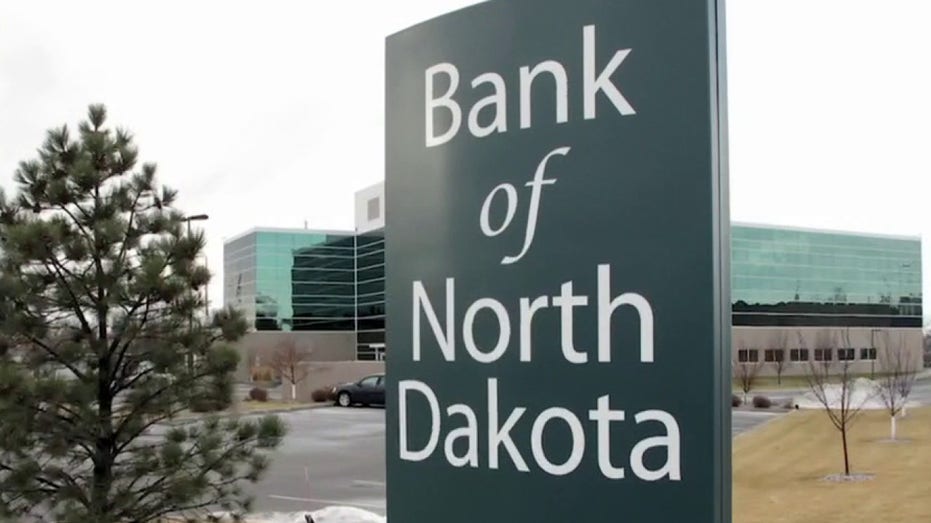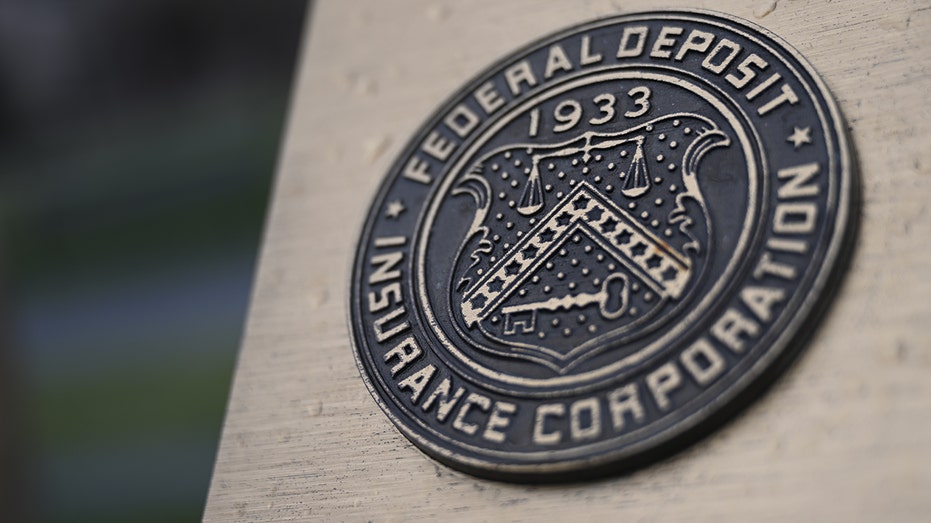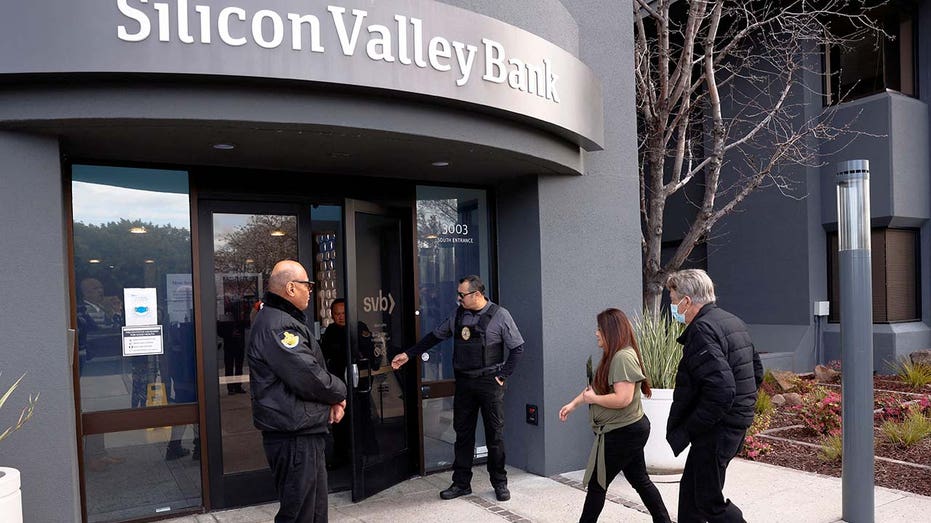State-owned Bank of North Dakota's unique structure garners attention in wake of banking crisis
Studies have found public-owned banks expose taxpayers to the risk of bailouts and potential political interference in lending decisions
Does the US need more regulations following the banking crisis?
Former Federal Reserve Vice Chair Randal Quarles and Cornerstone Research senior adviser William Silber give their take on how the government should responding to bank failures on Kudlow.
The recent banking crisis that unfolded amid the failures of Silicon Valley Bank and Signature Bank has brought increased attention to the unique structure of the state-owned Bank of North Dakota and prompted speculation that it could serve as a template for other states to create their own banks.
"Shark Tank" star and multi-millionaire investor Kevin O’Leary noted the business-friendly environment of North Dakota during a recent appearance on FOX Business’ "Varney & Co." O’Leary said, "Their sovereign bank, if you want to call it that, backstops their regional bank, which supports [the] purchase of real estate and farming and everything else. And they don’t go to zero because they’re well-managed."
The Bank of North Dakota is the only general service bank in the U.S. that is owned and operated by a state. It was founded in 1919 by a group known as the Nonpartisan League which sought to expand access to credit for the state’s farmers who relied heavily on store credit and insurance companies due to shortcomings of the region’s banking system. At the time, national banks couldn’t lend on farm loans, and state-chartered banks were undercapitalized.

The Bank of North Dakota is the only general service state-owned bank in the U.S. and is backed fully by the state of North Dakota. (Fox & Friends Weekend/Screengrab / Fox News)
The state-owned and operated bank was created by the legislature and organized under the management of the State Industrial Commission, which is chaired by the state’s governor, while an advisory board makes recommendations on its operations and a committee of executives handles the operations.
Beyond the unique management arrangement, the Bank of North Dakota’s state-owned status creates some notable differences in how it operates to most banks that Americans interact with for their financial needs on a day-to-day basis.
Unlike most commercial banks, the Bank of North Dakota (BND) is not a member of the Federal Deposit Insurance Corporation (FDIC), and all of its deposits are guaranteed by the full faith and credit of the state government. This means that ultimately, North Dakota taxpayers are on the hook for backstopping those deposits in the event that BND experiences a deterioration of its financial position.
When the bank turns a profit, funds are used to bolster BND’s capital reserves, returned to the state government’s general fund, or allocated to the state’s economic development initiatives. On some occasions, the state of North Dakota has used BND’s profits to balance the budget and plug projected shortfalls, such as when $25 million from the bank was used to reduce a $43 million deficit in 2001-2003.
WESTERN ALLIANCE BANCORP’S DEPOSITS FALL 11% ON US BANKING CRISIS FALLOUT

The state-owned and operated Bank of North Dakota is not insured by the FDIC and is fully backed by the state's government and, in turn, taxpayers. (Celal Gunes/Anadolu Agency via Getty Images / Getty Images)
However, overall the bank’s profits have represented a small portion of the state budget, and North Dakota maintains fiscal stabilization funds (also known as "rainy day funds") like a number of other states that serve as the state’s primary fallback option during fiscal crises.
A 2011 research paper by the Federal Reserve Bank of Boston noted that BND has shown a profit every year according to data available dating back to 1971. That being said, the Boston Fed noted that "there is no guarantee that a state-owned bank will generate profits during periods of fiscal stress, especially if its finances depend on the health of the state’s economy."
As an example, the Boston Fed cited how "BND’s poor performance during North Dakota’s severe agricultural crisis and recession of the 1980s exacerbated the state’s fiscal stress."
The Boston Fed wrote that BND’s most economically important role is serving as a wholesale bank for the community banks and credit unions located in North Dakota. In this role, it buys loans from those institutions’ portfolios, provides guarantees, and also serves as a depository for their reserves, and offers check clearing services. It also provides loans for agriculture, farms, homes, infrastructure and students.
IS MY BANK SAFE FROM FAILING? WARNING SIGNS OF FINANCIAL TROUBLE

The failure of Silicon Valley Bank prompted a crisis among regional banks. (REUTERS/Brittany Hosea-Small / Fox News)
Over time, a number of states including California, Massachusetts, New York, and Washington have considered the possibility of launching a state-owned bank like BND. Advocates typically argue that a public bank would enable better financing of infrastructure projects or extend banking services to underserved communities.
However, a BND-like structure would be ill-suited to the latter goal, as the institution explains: "Most of BND’s deposits come from the state’s collections of taxes and fees. The balance of the Bank’s deposits come from corporate accounts, North Dakota city and county government entities, and North Dakota financial institutions. North Dakota residents are a very small part of our deposit base."
Unlike most commercial banks and credit unions, BND only offers limited consumer banking, allowing customers who reside in the state to open checking or savings accounts despite not offering credit or debit cards. Indeed, BND writes, "Because of our unique structure as a state-owned bank, it is the Bank’s policy not to compete with the private sector for retail deposits. Therefore, convenience products such as debit cards, credit cards or online bill pay are not offered."
There are also substantial start-up costs that come along with the creation of a state bank, in addition to risks to taxpayers and concerns about potential political favoritism or interference.
GET FOX BUSINESS ON THE GO BY CLICKING HERE
The Washington State Treasurer’s office analyzed a number of studies on public banks in 2018 and found that establishing a state bank could cost between $100 million and $300 million.
Washington’s study of studies observed, "An enormous challenge would be keeping a public bank free of political influence." It also concluded, "there is too much taxpayer risk, and not nearly enough proven benefit from the formation of a state bank."




















